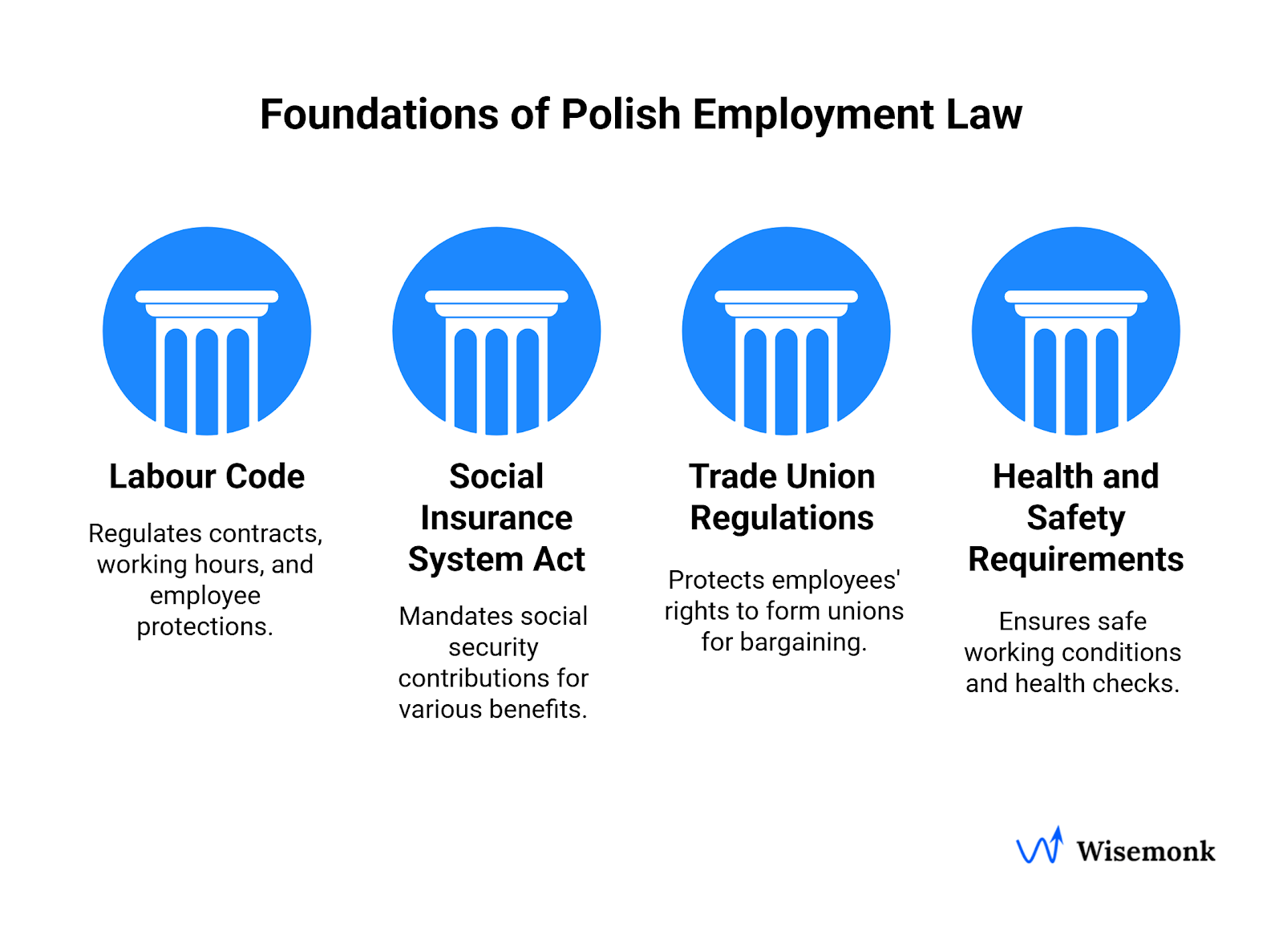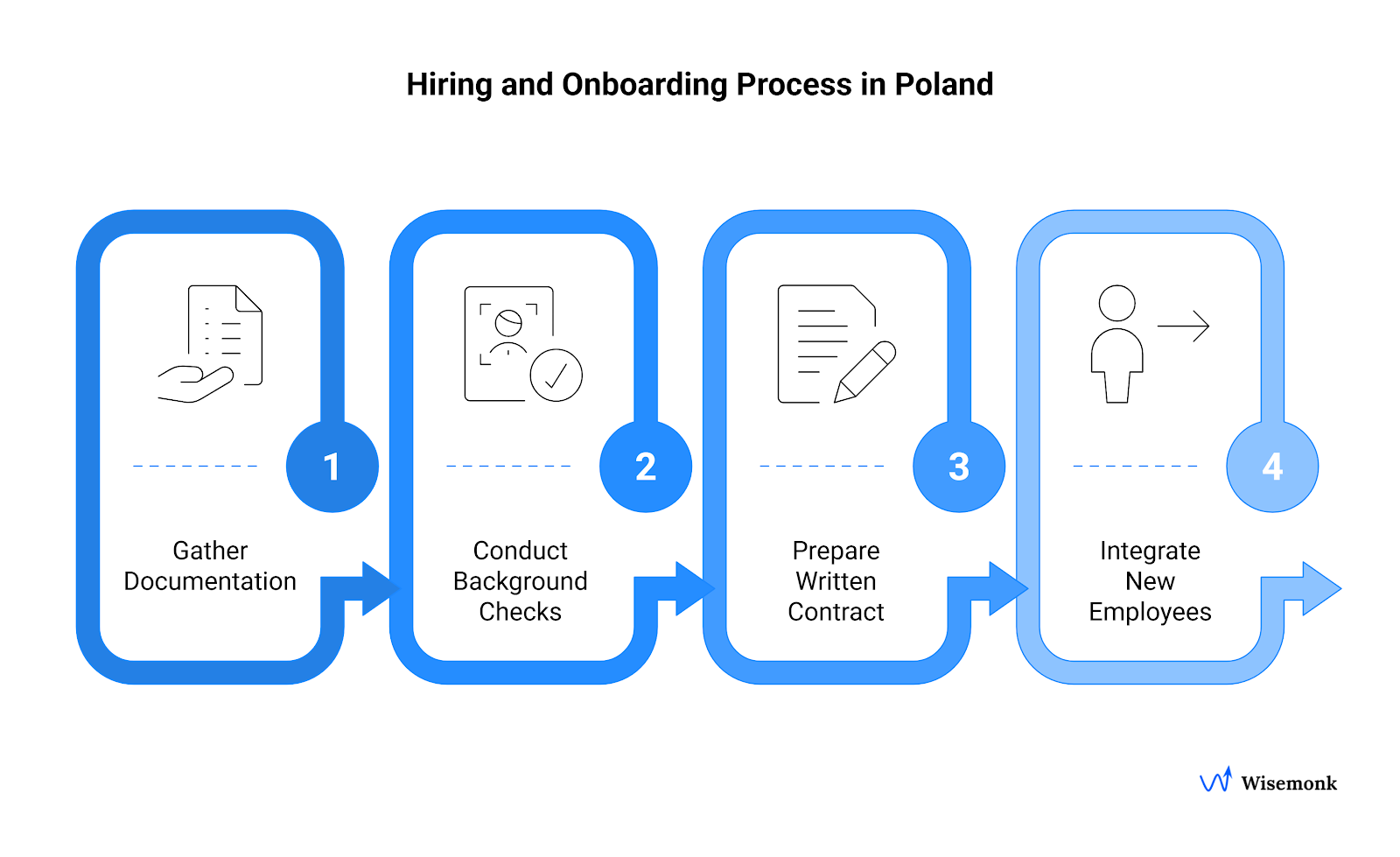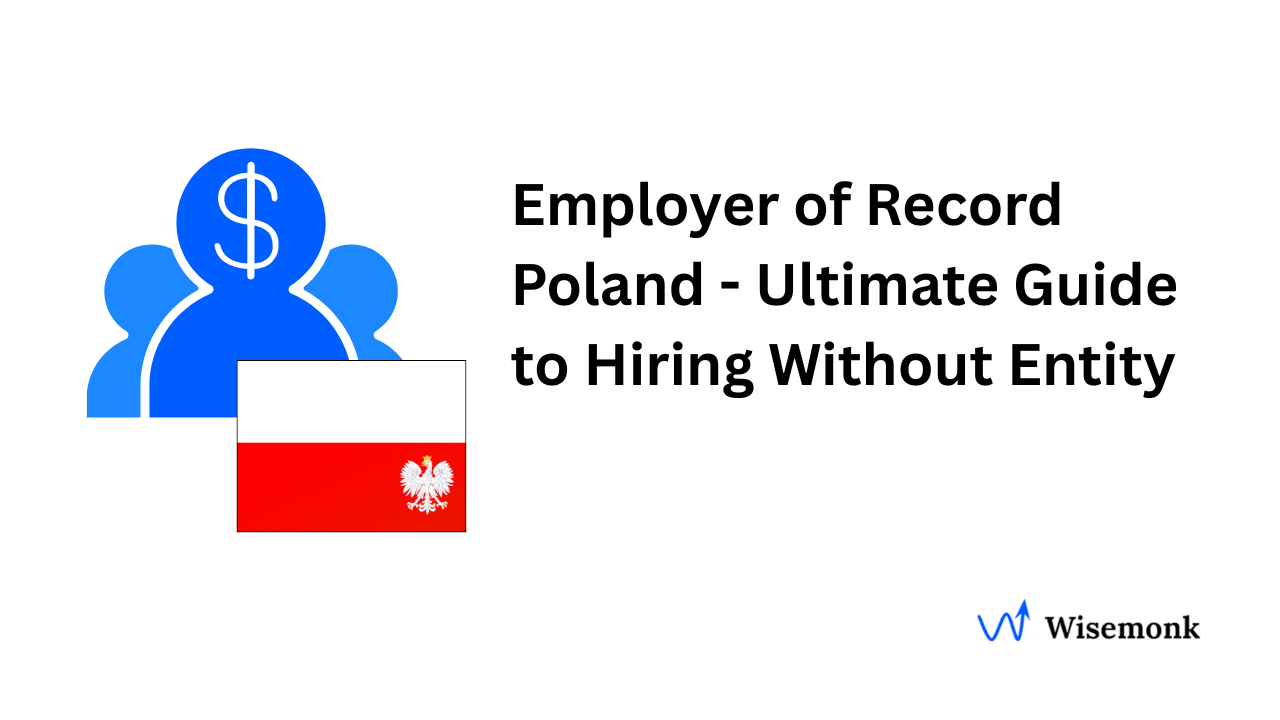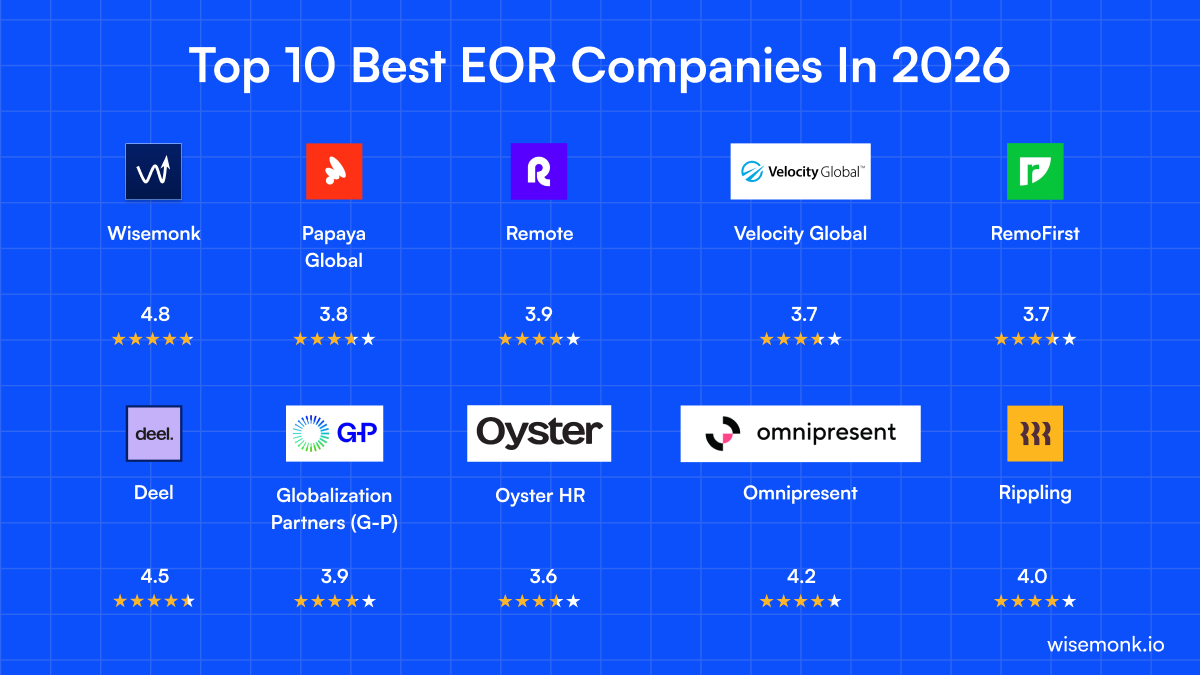Curious how to navigate hiring in Poland? Poland’s vibrant market and strong economic growth attract many employers looking to hire employees and expand into the EU. But if you’ve explored Polish labor law, tax compliance, and employment contracts, you know how complex it can get, especially for foreign businesses. That’s where an Employer of Record (EOR) Poland (often referred to as a professional employer organization or EOR in Poland) comes in, easing everything from payroll management to employee benefits so you can focus on growth, not paperwork.
Let’s take a closer look at how an employment partner can help you navigate local employment laws and hire employees in Poland quickly and compliantly.
What Is the Polish Employment Law Framework?[toc=Employment Law Framework]
Before hiring in Poland, here’s what shapes every employment contract and company policy:

- Labour Code (Kodeks Pracy):
The foundation of Polish employment law, it regulates contracts, working hours, leave entitlements, sick pay, terminations, and employee protections. Both employers and employees must follow it strictly. More details at gov.pl Labour Law. - Social Insurance System Act (ZUS):
This law mandates social security contributions covering pensions, disability, sickness, maternity, and workplace accidents. Employers register employees and share premium costs with employees. Latest rates and info can be found at the ZUS official site. - Trade Union Regulations:
Poland protects employees’ rights to form or join trade unions for collective bargaining and workplace representation, even in small companies. Trade unions help negotiate pay, working conditions, and participate in workplace safety. For details, visit Gov.pl Trade Unions. - Health and Safety Requirements:
Employers must provide safe working conditions, conduct regular safety training, supply protective equipment, and ensure health checks. Non-compliance carries penalties. Full guidelines are available at gov.pl Health and Safety and Biznes.gov.pl H&S.
Following these laws helps you stay compliant and protects your workforce in Poland.
What are the Key Benefits of Poland EOR?[toc=Key Benefits of EOR]
Relying on an employer of record Poland or EOR in Poland brings clear advantages:
- No need to create a local entity or register in the national court register.
- Your EOR acts as the legal employer, handling employment contracts, payroll management, tax compliance, and salary payments.
- Employee benefits and social security contributions are managed in line with Polish labour code and statutory benefits, including public healthcare system through the national health fund.
- Quickly hire employees, whether local or foreign, while your business operates with full legal compliance.
Many employers report this is the fastest route for entering the Polish market and avoiding the headaches of country’s labor laws.
How Does Payroll and Tax Compliance Work in Poland?[toc=Payroll & Tax Compliance]
Payroll and tax obligations include:
- Polish Tax System: Employees pay personal income tax (PIT). Employers deduct, report, and remit PIT to tax authorities.
- Social Security (ZUS): Mandatory contributions split between employer and employee; covers pension, disability, sickness, health, and accident insurance. Rates change yearly, check the Bureau of Labor Insurance.
- Monthly and Annual Filings: Timely filings ensure legal obligations are met. EOR services manage these seamlessly to avoid legal risks and fines.
- Tax Optimization: EORs help manage gross salary calculations, taking advantage of legal deductions and benefits fund options available under Polish law.
Letting an EOR handle payroll means guaranteed compliance and no surprises at audit time.
What Employee Benefits and Entitlements Are Required in Poland?[toc=Employee Benefits & Entitlements]
The Polish labor code ensures generous employee benefits:
- Annual Leave: Minimum 20–26 days’ paid vacation, depending on service, plus 13 public holidays.
- Sick Leave: Paid statutory sick leave, covered partly by the employer and later by ZUS.
- Maternity/Paternity Leave: Maternity (20 weeks), paternity (2 weeks), plus robust parental leave rules under the Labour Code.
- Extra Benefits: Health insurance, pension, and sometimes additional perks like private medical care; expectations may vary by sector.
Providing these benefits is not just compliant, it’s expected in modern Polish workplaces.
What are the Hiring and Onboarding Process in Poland?[toc=Hiring & Onboarding]
To legally employ and onboard workers in Poland, you’ll need:

- Documentation: You’ll need a valid ID, PESEL (national ID number), proof of address, and (for non-EU hires) a work permit.
- Background Checks: Verifying past employment, education, and sometimes a criminal record check helps make sure candidates fit your team and legal obligations.
- Written Contract: This must be in place before anyone starts work. It covers details like the trial or fixed term, salary, notice period, job duties, and must align with Polish labor law.
- Integration Timeline: With an EOR in Poland, new employees are usually ready to go in just a few days, no need to wait weeks for lengthy registrations or worry about missing compliance steps.
How Do You Manage a Polish Workforce Effectively?[toc=Workforce Management]
Polish business culture values professionalism, punctuality, and respect for hierarchy. Here's how you can manage your workforce effectively:
- Work Culture: Poles value punctuality, professionalism, and respect for hierarchy. Teamwork and direct communication are appreciated, though some formality remains.
- Communication: Most business functions in Polish; English is common among professionals, but not universal. Written and clear contracts are key.
- Performance Management: Regular feedback, KPIs, and annual reviews are expected. Professional growth and training are valued.
Adapting to these norms helps maximize performance and retention.
How Do Termination Procedures Work in Poland?[toc=Termination Procedures]
Ending an employment relationship in Poland requires careful adherence to Polish labor law and proper documentation. Here’s what every employer of record Poland and hiring company should know:
- Dismissals: All dismissals must follow strict Polish labor law. Employers need a valid reason, must observe the legally required process, and document every step, including proper delivery and justification in the employment contract.
- Severance Pay: If an employee is made redundant, severance pay is owed based on tenure and detailed within the employment contracts, as mandated by the Polish labour code.
- Notice Periods: Notice periods vary depending on contract type and length of service, ranging from 2 weeks for short-term employees to up to 3 months for those with longer tenure or indefinite term contracts.
- Legal Risks: Adhering closely to local labor laws and maintaining thorough documentation is essential. This minimizes the risk of costly legal disputes or penalties and ensures the termination process is transparent and compliant.
Following these steps helps employers stay within Polish employment laws, reduces legal risks, and fosters a fair employment environment for both parties.
What Should You Know About Cost Analysis and Financial Planning for EOR in Poland?[toc=Cost Analysis & Financial Planning]
Curious about the real costs and what’s covered? Here’s a smart budgeting overview:
- EOR Service Pricing: Flat monthly fee per employee (typically $199–$700), or 10–15% of gross salary. Some charge a setup fee ($500–$2,000).
- Social Security Costs: Employers and employees split ZUS contributions (totaling roughly 20%+ of gross salary; exact rates at Bureau of Labor Insurance).
- Benefits Budgeting: Account for paid leave, ZUS, health insurance, pension, and 13th-month salary if customary in your sector.
- ROI: EOR is usually cheaper and more flexible than setting up a local entity, ideal for testing the Polish market, temporary projects, or small teams.
What Are the Common Challenges, and How Do EOR Services Solve Them?[toc=Challenges]
Expanding into the Polish market comes with its own set of hurdles, especially for foreign companies trying to navigate polish labor law and manage new employment contracts. Fortunately, partnering with an employer of record Poland (EOR in Poland) can smooth out these bumps and keep you focused on growth.
- Bureaucracy: Polish law and local labor regulations are known for their paperwork and administrative demands. An Employer of Record or legal employer will handle registration, employment contracts, payroll management, and ensure complete compliance with all statutory requirements so you don’t get bogged down in the process.
- Cultural Adaptation: Polish business culture emphasizes formal communication and respect for collective bargaining agreements. An employment partner or EOR provides guidance on cultural expectations, making integration and managing employees in Poland much easier.
- Regulatory Change: Polish employment laws and tax compliance rules can change quickly. EOR services monitor updates to polish labor code, ZUS requirements, and local statutes, keeping your hiring process and employee’s salary always in line with current legal obligations.
- Scaling: Whether you want to hire employees for a short-term project or scale your team, Employer of Record in Poland offers flexibility. You can adjust headcount up or down without the need to form a local entity or register with the national court register, minimizing legal risks and administrative load.
Choosing a dedicated employer of record means you can expand confidently, knowing all legal, cultural, and compliance details are expertly handled while you focus on your core business.
Conclusion[toc=Conclusion]
Growth in Poland is within reach if you address compliance and cultural nuances early. In our experience as a leading Employer of Record service provider, choosing the right employer of record Poland helps you:
- Compliantly hire and manage employees
- Control operational costs
- Adapt to local business practices
- Expand flexibly across the EU
Success factors? Understand Polish labor law, partner with a reliable EOR, and implement HR practices that prioritize both local compliance and your corporate culture.
Ready to expand your global workforce quickly and compliantly? Partner with Wisemonk’s Employer of Record services to effortlessly manage hiring, payroll, and compliance, so you can focus on growing your business with confidence.
Frequently asked questions
What are the ZUS contributions in Poland?
Both employer and employee are required to contribute to ZUS (social insurance institution), covering pension, health, and other benefits. Rates change annually; check the official ZUS page for the latest.
How does the Polish notice period system work?
Notice periods depend on contract type and tenure, typically 2 weeks to 3 months, as regulated by the polish labour code. All must be documented in employment contracts.
What are the requirements for work permits?
Non-EU workers need a work permit, usually sponsored by the legal employer and approved by local authorities. For details, see gov.pl.
How long does it take to hire through EOR in Poland?
With an Employer Of Record, the hiring process for new employees often takes 1–2 weeks, much faster than forming a local entity.
What are the cultural considerations for managing Polish employees?
Polish employees expect direct communication, clear job duties, professional recognition, and statutory benefits. Respect for hierarchy and work-life balance is also important in Polish business culture.
What are the two types of contracts in Poland?
The two main civil law contracts are:
Contract to perform specified work (umowa o dzieło) – for a specific task or project.
Contract of mandate (umowa zlecenie) – for services performed under an agreement.
What is an employment contract in Poland?
An employment contract in Poland is a legal agreement between an employer and employee that establishes the employment relationship, including the official start date of work.

.png)
%20(1).webp)
